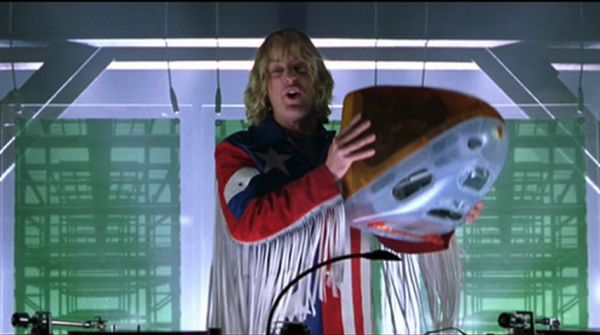File Server Builder's Guide
by Zach Throckmorton on September 4, 2011 3:30 PM ESTConclusion
Home file servers can be enormously useful in a multi-system residence. Adding such a specialty system to a home network is easy, and certain file server operating systems are also very simple to set up and administer. A home file server is also an easy introduction to servers in general. Remember, the primary purpose of a home file server is storage - so rather than building around the CPU or GPU, build a home file server around the HDDs. Home file servers don't need powerful CPUs - instead focus on power savings and adequacy rather than raw processing muscle. While it's difficult - perhaps impossible - to know what HDD models are most reliable, choose your case carefully and take time managing cables so you can maintain optimal environments for your drives. Buy high-quality PSUs so your HDDs are supplied with clean power. And of course, back up your data!
"The files are in the computer. It's so simple!"











152 Comments
View All Comments
EnzoFX - Sunday, September 4, 2011 - link
What about something for a mostly Mac environment, and the occasional Windows system.DesktopMan - Sunday, September 4, 2011 - link
Anyone looking for a setup with many HDDs should take a look at port multipliers. You can get external cases for the HDDs, which saves your PC from a lot of heat. Connect using one ESATA cable per 5 drives and you don't need many ports either. (Just make sure they support port multipliers.)mongo lloyd - Sunday, September 4, 2011 - link
"It is impossible to hear active HDDs inside this case even when you're sitting just a few feet from it (even the notoriously loud VelociRaptors)."Maybe if you're half-deaf. And if you put 10 of them in that case, even your 97-year-old grandma would hear them.
Don't be fooled, a 5-10 disk cabinet will be rather loud and you probably don't want it near your person if you are sensitive to noise. No way around that.
Rick83 - Sunday, September 4, 2011 - link
Just skimming the CPU page, I see a problem: None of these CPU's accelerate encryption in hardware.Encrypting your hard-disks should be standard procedure, especially on a file server. You never know what someone may use against you, and in the case of a disk failure, you won't have to worry about sending in a disk with readable data on it.
Without hardware acceleration though gigabit ethernet may not end up being saturated, especially on the truly low end zacates and forget about atom...
My recommendation is the sandy bridge i5 2390T. Should be trivial to cool passively if there's enough fans to keep the chassis below 50°C.
Alternatively, there's VIA - but those nanos are somewhat harder to obtain in the retail channel (and even the 2390 is pretty hard to get)
And finally, something not touched on: first gen core i5 CPU's on old socket 1156 boards. As those go EOL good deals can be had, and there's no clear power savings advantage in sandy bridge.
RAM wise, 2GB is a huuuuge amount for a slim OS.
I'm running 2GB on my machine, and never hit swap -ever- and that's even though I am runnig gentoo and compiling my own kernels and running multiple other services besides samba and nfs.
Finally on boards: with a good deal you can get those SATA ports on the board on the cheap. Paid only 150 euro for my p55-ud5 last year, as it as going EOL. Bonus is you generally get a better featured board as well, so I also have IEEE 1394 and dual LAN.
DanNeely - Sunday, September 4, 2011 - link
Encryption is also one more factor to make things harder when everything goes wrong at once and you're trying to recover data. I'd rather write off the cost of the disks if they fail than impair my catastrophe recovery options.Rick83 - Monday, September 5, 2011 - link
That's why you have backups.DanNeely - Monday, September 5, 2011 - link
If your backup is still intact, not everything has gone wrong yet...Rick83 - Monday, September 5, 2011 - link
That's the point of the back up so, so that it's impossible for everything to go wrong.If everything goes wrong, there's usually a pretty big design flaw somewhere.
The impact of encryption is relatively negligible, excepting the performance impact.
don_k - Sunday, September 4, 2011 - link
That is why the article recommends a quality PSU. The enterprise space has 48 disk monstrosities, 10, even 20 drive home file server is perfectly possible - get a good PSU.chbarg - Sunday, September 4, 2011 - link
Excellent comment.Recently I built a W2008 server with an AMD processor without encryption support in hardware and I was surprised by the high CPU utilization by Truecrypt. In contrast, my laptop has an Intel CPU with encryption support in hardware and Truecrypt barely loads the CPU.
I use LUKS encryption in my file server at home for safety.
Regards,